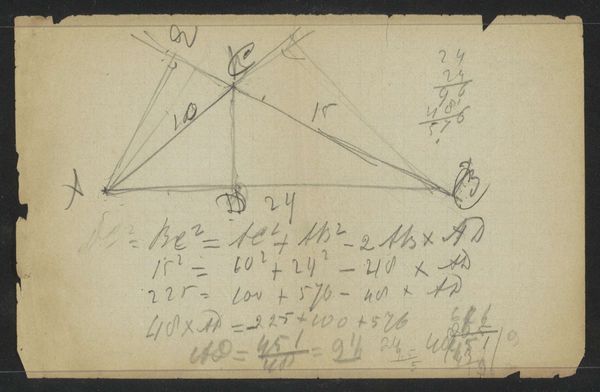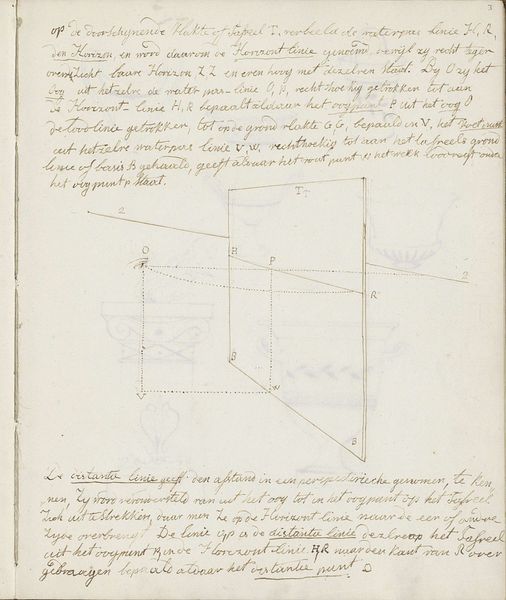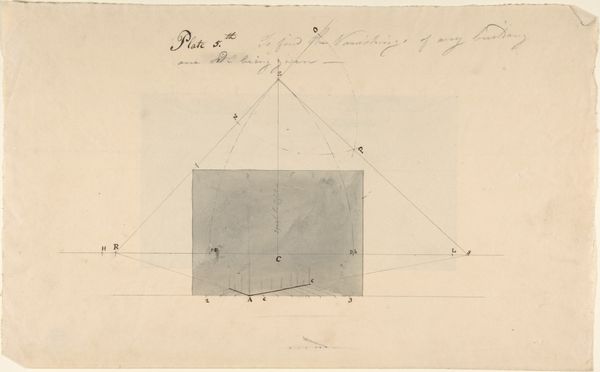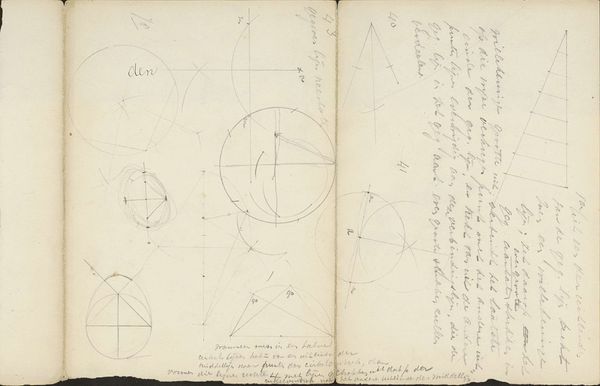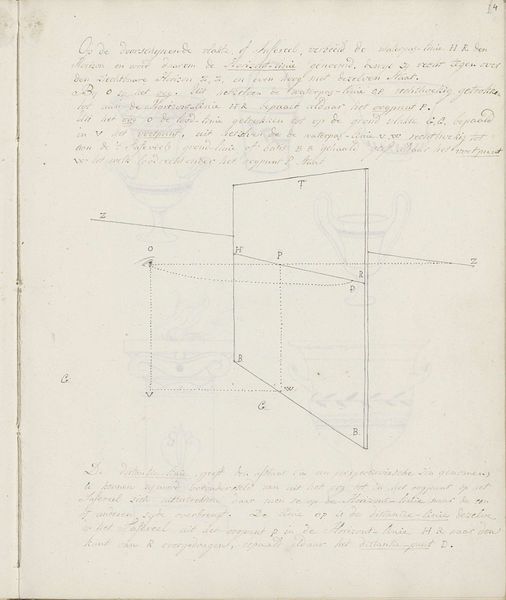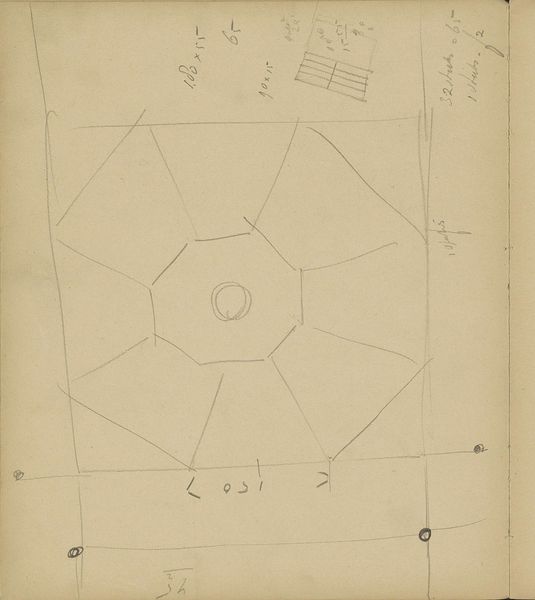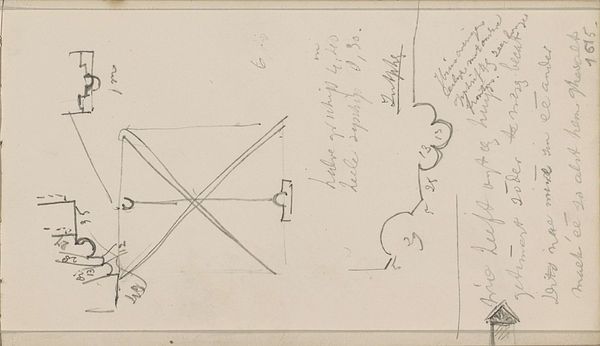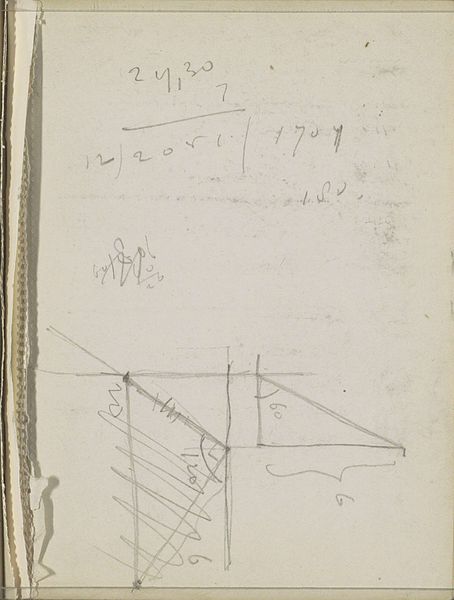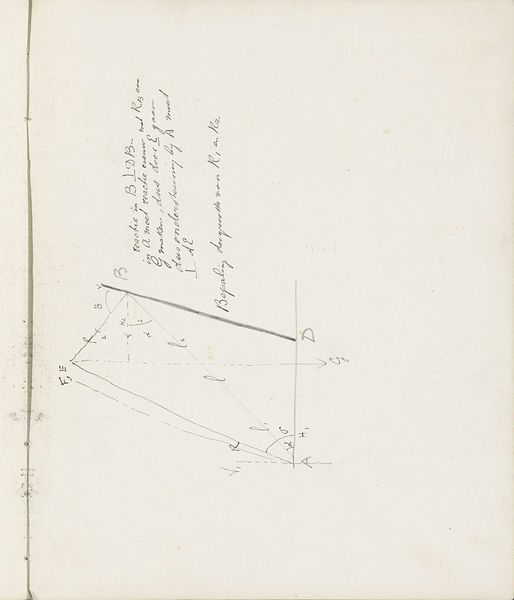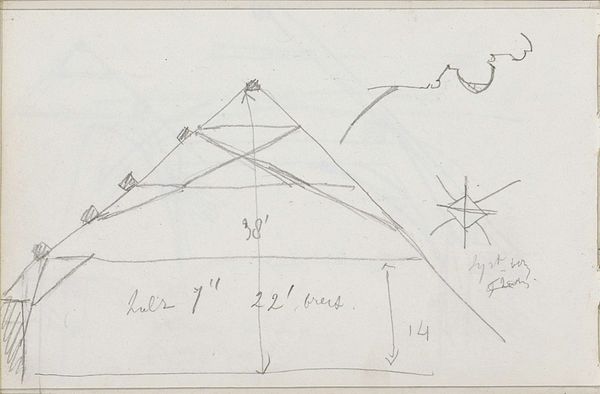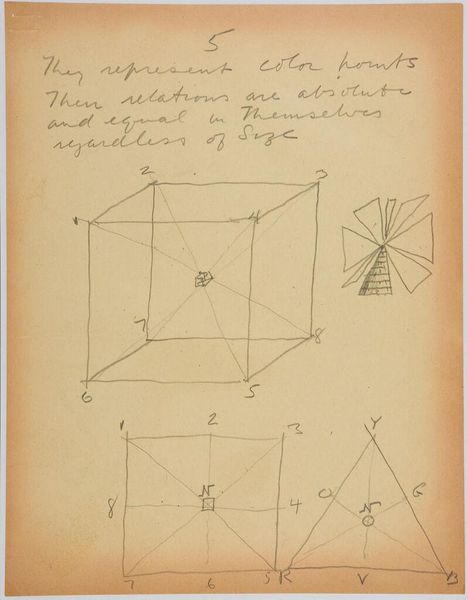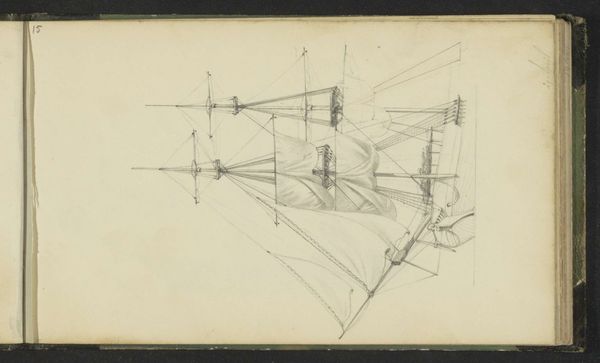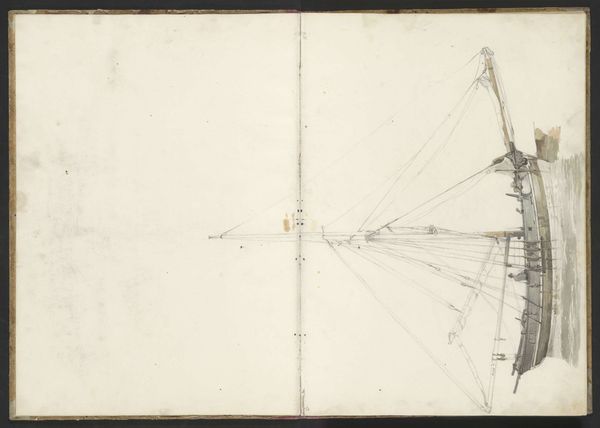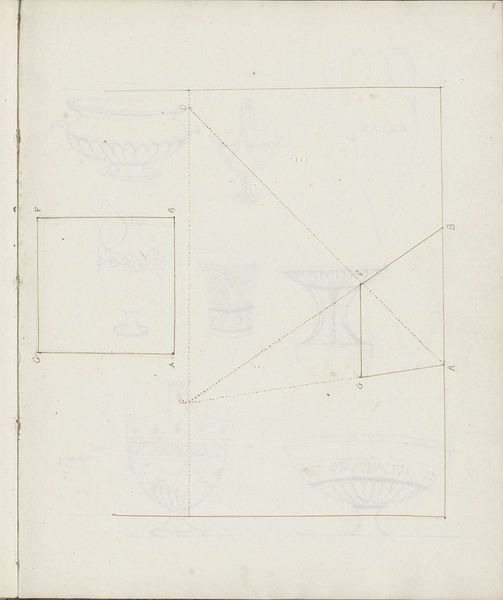
drawing, paper, pencil
#
drawing
#
aged paper
#
sketch book
#
hand drawn type
#
paper
#
form
#
personal sketchbook
#
hand-drawn typeface
#
geometric
#
pen-ink sketch
#
pencil
#
ink colored
#
abstraction
#
line
#
pen work
#
sketchbook drawing
#
sketchbook art
Copyright: Rijks Museum: Open Domain
Editor: We’re looking at “Perspectiefoefeningen,” or “Perspective Exercises,” a drawing from 1883 to 1922, by Johanna van de Kamer. It’s done with pencil and ink on paper. The sketch book style and geometric shapes give it the feel of a private, almost scientific, exploration. What can you tell me about it? Curator: Looking at the social context, this piece belongs to a larger tradition of academic study and artistic training in perspective. The late 19th and early 20th centuries saw a boom in art education, particularly for women. Van de Kamer was exploring not only artistic techniques, but also participating in a broader social shift that made art education more accessible, contributing to a transformation in the art world. Why do you think she focuses on such technical drawings? Editor: Perhaps she wanted to master a very specific skill to unlock creative expression. It looks like she was dedicated to getting it right, refining the basics. Curator: Exactly. Mastering perspective was considered essential, part of institutional and societal validation for her craft. Remember, formal artistic training wasn't always available, especially to women. By delving into these exercises, she may have been consciously participating in and seeking validation from the established art system, to create her own visual lexicon. Editor: So, the sketch, in addition to being practice, might have also been an act of participating in the larger art world? Curator: Precisely. We have to see the hand of the artist in their moment in time to begin to unravel how institutions helped frame not only their practice, but their access to materials, training, or indeed an audience for their work. Editor: That's really fascinating! I had just seen it as rudimentary sketches, but there's so much more to unpack in considering what gaining technical proficiency might have meant to the artist in this period. Curator: Indeed, thinking about the politics of art always enrich the appreciation.
Comments
No comments
Be the first to comment and join the conversation on the ultimate creative platform.
